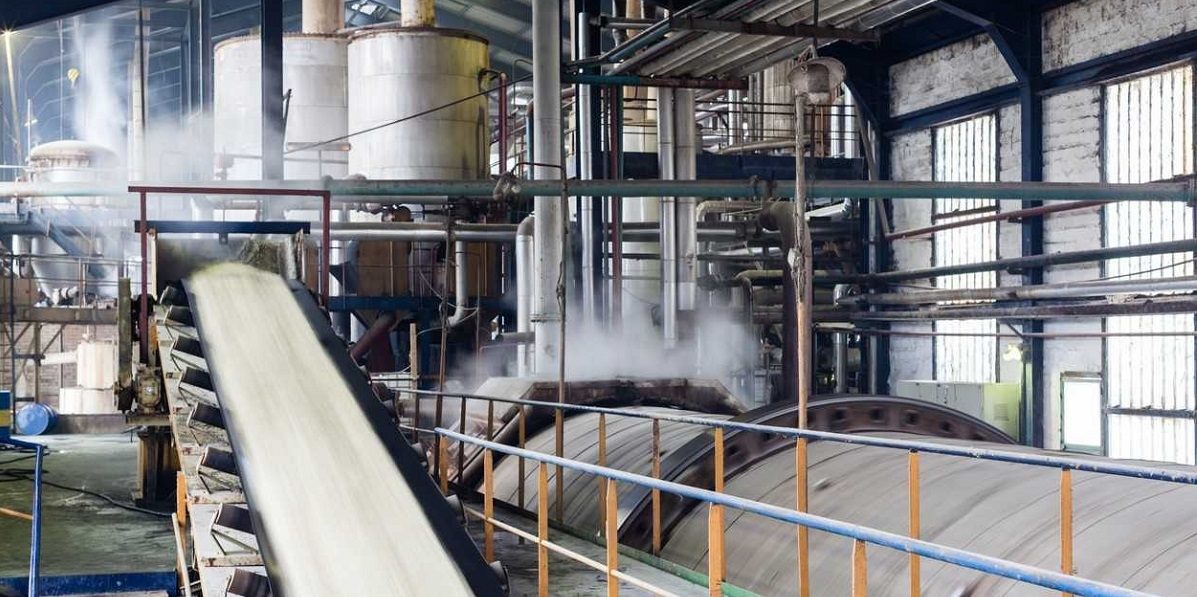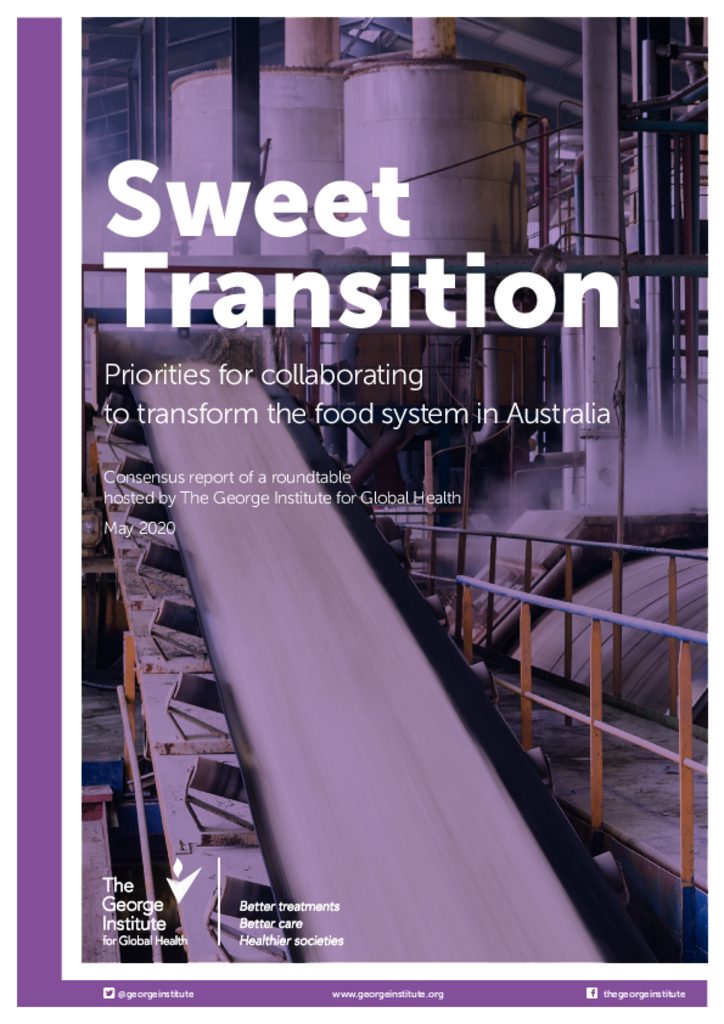
Sweet Transition: Priorities for collaborating to transform the food system in Australia
Many of the present discussions and debates in Australia relating to sugar have focused on the implementation of a sugar tax or sugar-sweetened beverage levy—policy concepts that are often polarising and that have currently exhibited little traction. Additionally, even where implemented, a tax on certain sugary products would only be one small step, part of a solution to a much greater problem.
A new report builds on the comprehensive overview by Vanessa Clarkson commissioned by The George Institute and published on February 2020, ‘Sugar in Australia: A Food Systems Approach: Competing Issues, Diverse Voices, and Rethinking Pathways to a Sustainable Transition’, to broaden the debate on sugar in Australia so that the entire system is considered, including sugar’s effects on people and the environment.
One in two Australians has one or more chronic diseases such as heart disease, stroke, or diabetes. Two in three adults are either overweight or obese, and one in four children are obese, with excess sugar consumption being a key contributor to obesity and diabetes.
In terms of the environment, sugar cane production is a significant consumer of Australia’s water supplies and the polluted run-off is damaging to natural ecosystems like the Great Barrier Reef.
The expert consensus report, Sweet Transition: Priorities for collaborating to transform the food system in Australia, is the outcome of a roundtable hosted by The George Institute for Global Health and calls for a whole of government, the whole of system approach to mitigate the broad impacts of sugar.



